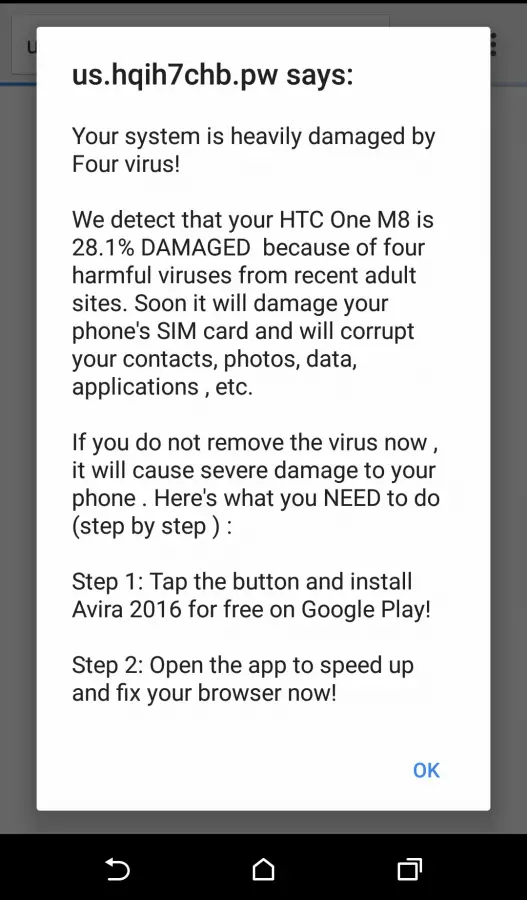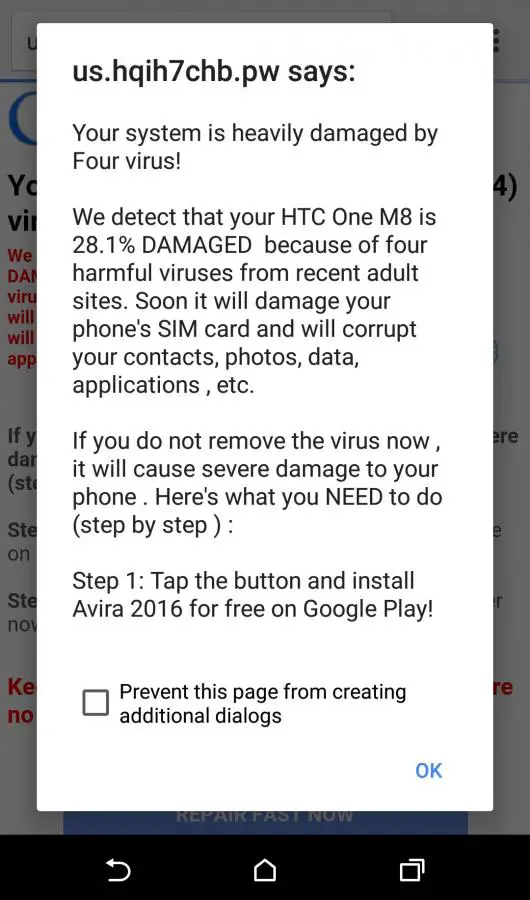
This is a placeholder text
Group text
by Reliya on 22 October 2016 - 16:10
by Reliya on 22 October 2016 - 16:10
It's the same website each time, and it redirects me from PDB to this site. Also, no, I don't look at adult sites on my phone.



by Reliya on 22 October 2016 - 16:10
by Koots on 22 October 2016 - 16:10
by Reliya on 22 October 2016 - 17:10
I'm not sure if this will help, but here's the other forum site having the issues:
http://help.forumotion.com/t145609p210-only-topic-ads-redirection-mobile-pc
by Reliya on 22 October 2016 - 17:10
I'm not sure why, but it seems to redirect more frequently on this topic for me. Three times as I have been trying to post this. (Irony?)
It usually only happens once every so often, so I don't really care that it happens. I just exit the browser and reopen the page.
by BlackthornGSD on 22 October 2016 - 23:10
Christine
by Dawulf on 23 October 2016 - 03:10
I think it's a bit funny when it says something to the affect of "Your iPhone 6 is infected!" xD
by GSD Admin on 23 October 2016 - 03:10
Blackthorn when you say you don't get these in other places, in my past experience with these types of adware, not all sites might trigger it. What browser are you using?
Reliya - this site is not a pre-made site. I dare any person to show me a site that scans websites that we have malware/adware/viruses or anything but a high ranking.
Koots, I have no clue about samsung devices but I do find it funny that Oli owns these devices and like me he has never seen these.
You can try these things to stop it and find it.
Internet Explorer
Open the Internet Explorer browser and click on the "Tools" menu at the top of the page.
Click on "Internet Options," then click the "Security" tab. In the "Security Level for this Zone" box, use the slider to set the security to "High." This stops Internet Explorer from using ActiveX, preventing Web pages from redirecting you to others. Although this stops the redirecting action, legitimate websites may not load properly, or at all. Some functions on websites become disabled, such as links to other websites, video or PDF files. This method is extreme, but it stops redirects while you scan the computer for viruses.
Click on "Trusted Sites." Add any websites that you go to frequently and that you trust. These websites will behave as normal, without restrictions.
Run anti-spyware or anti-malware software on your computer (see Resources). Redirects are often causes by a virus, which software can find and eliminate. If any viruses are found and deleted, this is likely to end the redirects you are experiencing.
Go back to the "Internet Options" window, and set the security slider back to its initial position. If the anti-spyware program eliminated the source of the redirects, your browser now behaves normally.
Firefox
Open the Firefox browser and click on the "Tools" menu.
Click on "Options," then click on the "Advanced" tab. Navigate to the "Accessibility" box, under the "General" tab.
Click the check box next to "Warn me when websites try to redirect or load the page." Click "OK." This option stops a redirect from occurring, and notifies you of the situation. You may then allow or deny the redirect. Use this feature to browse the Web while you look for the source of the redirects, which may be a virus.
Use an anti-spyware program (see Resources) to uncover any potential threats to your computer, such as a virus or infected file. This may be the cause of the redirects. Anti-spyware programs generally scan your hard drive and delete suspicious files for you. This often stops your browser from redirecting.
Uncheck the box next to "Warn me when websites try to redirect or load the page" once the source of the redirects has been removed. This option may also be left on for additional security in the future, if desired.
Very good link with excellent info.
https://malwaretips.com/blogs/remove-browser-redirect-virus/
by greyhoundgirl on 23 October 2016 - 16:10
Contact information Disclaimer Privacy Statement Copyright Information Terms of Service Cookie policy ↑ Back to top




